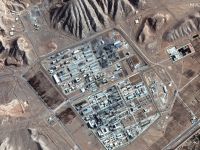Palestinians reacted with anger and disgust at a speech by US President Bill Clinton broadcast primetime on Israeli television Friday calling it "political blackmail."
"It sounds like blatant political blackmail, all in the interest of (Israeli Prime Minister Ehud) Barak," top Palestinian spokeswoman Hanan Ashrawi told AFP.
"It is clearly a biased statement. It is very cynical, pandering to Barak and Clinton's domestic needs.
"It just exposes the underlying American bias and undermines the peace process," Ashrawi added.
Clinton, in a half-hour interview, said he "always wanted" to move the US embassy from Tel Aviv to Jerusalem and would review the United States' "entire relationship" with the Palestinians if they went ahead with plans to declare a state when a deadline expires on September 13th, even if there is no agreement by then.
Jerusalem's eastern quarter, occupied by Israel in 1967, is one of the most disputed issues in the Israeli-Palestinian peace process.
"I have always wanted to move our embassy to west Jerusalem. We have a designated site there," Clinton said in an interview with Israeli public television.
"I have not done so because I did not want to undermine our ability to help to broker a secure and fair and lasting peace between Israelis and Palestinians.
"But in light of what has happened, I have taken that decision to review, and I'll make a decision sometime between now and the end of the year on that," he added.
The US and Israel blame the failure of the Camp David summit on Palestinian President Yasser Arafat's refusal to compromise, in particular by rejecting a US-bridging proposal that offered limited shared control over east Jerusalem, which houses holy sites of Islam, Christianity and Judaism.
"While it is true that the Palestinians themselves did make some moves on Jerusalem, Israel did more," Clinton said.
Ashrawi said Clinton was "obviously" trying to help Vice President Al Gore's presidential campaign and his wife Hilary win her battle for a senate seat of New York, where Jewish voters wield considerable influence.
Ashrawi said Clinton was also trying to help Barak, who has been criticized by Israeli's right wing for breaking a national taboo by negotiating on Jerusalem, which both Israel and the Palestinians want as their capital.
"Expressing such a blatantly biased position was entirely irresponsible and prepares for further confrontation," Ashrawi said.
"He is not helping the Israelis by undermining the peace process because in the end, everyone will lose," she told AFP.
Israel and the Palestinians face a September 13 deadline to reach a final agreement on the most difficult issues at the heart of their decades-old conflict, including control over Jerusalem, the fate of some 3.7 million Palestinian refugees and the borders of a future Palestinian state.
The two sides are due to resume negotiator-level talks on Sunday after the 15-day Camp David summit ended in failure on Tuesday.
Clinton told Israelis that US would seek to boost its already close relationship with the Jewish state.
"In view of the courageous actions that the prime minister and the Israeli team took at the summit and in view of the withdrawal from Lebanon, I think that some review of strengthening is in order," Clinton said.
"I plan to have a comprehensive review to improve our strategic relationship.
"We are going to have talks that will start right away with the view towards what we can do so that Israel maintains its qualitative edge," he said, evidently referring to a policy in which Israel receives superior types of arms funded by US aid than the United States' Arab allies -- OCCUPIED JERUSALEM (AFP)
© 2000 Al Bawaba (www.albawaba.com)







